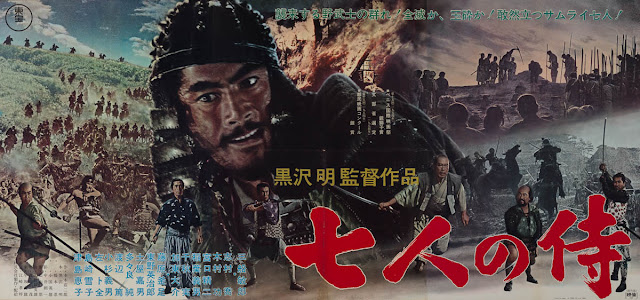Beetlejuice (30th Anniversary Re-Release) (Dir. Tim Burton, 1h 32m)
In a career spanning nearly four decades, Tim Burton's filmography has gone from adaptions of superhero comics and classic children's literature, to beautifully strange Gothic tales of suburbia and what may lurk behind its doors. Yet, for many, it is Burton's second film, his big break, his first foray into the gothic imagery that now accompanies his name, (and the second-rate knockoffs that homage his style), that remains, together with his splendidly Gothic take on Batman, and the bittersweet fable, Edward Scissorhands, his best work. Now, thirty years on from its initial release, Beetlejuice is back, (and just in time for Hallowe'en too!) to frighten the old fans and spook and scare a new generation.
Undoubtedly, Beetlejuice lays down many of the foundations of Burton's style, from the tongue in cheek social commentary of a newly dead couple (Alec Baldwin and Geena Davis) having to share their former home with an aspirational, style-chasing, utterly neurotic couple (Catherine O'Hara as an obsessive artist and sculptor, and Jeffrey Jones as her henpecked husband), with the quintessential perky goth, Lydia (Winona Ryder) in tow.
Certainly, the film sets itself up excellently, portraying death as, far from escape, entrapment in the house that the Maitlands lived in, forced to try and manage the bureaucracy of death, best seen in a Gillam-esque travel to a labyrinthine, and impressively, wilfully, complex government style building where they are allotted an unhelpful case worker, and told to read the lengthy handbook they are given on first dying. Outside is an otherworldly, endless, and visibly artificial desert, infested with multimouthed stripy worms that threaten any dead unfortunate enough to end up here.
Against this, and threatening the peace and quiet, (and indeed decor) of their home are, as aforementioned, the neurotic couple, of real estate developer and constant man-with-a-plan Charles, and his openly pretentious sculptor wife, Delia. There is something, at least initially, caricaturish about these two, shifting from tearing the house apart with the aid of interior design-cum-occultist-Otho (Glenn Shadix), to realising that their haunting could make them rich and famous, to finally accepting and living side by side with their ghostly neighbours.
And then there is Lydia. Oh boy, Lydia is one of the greatest characters, not only in this film, not only in Burton's filmography, but in American cinema full stop. An endless set of quotable lines, an enjoyably over-the-top gothic morbidity, sensibility and dress-sense, a surprising matter-of-factness to being in the company of dead people, and an excellent character arc and growth. It comes as no surprise that Burton has spent most of his career trying to recreate as quirky and interesting a character ever since, to mixed results
As with many subsequent Burton productions, there is a strangely perfect sense to the set design, as the unfortunate (and very dead) Maitlands forced to deal with the conversion of their house into a hyperreal, extremely-over-the-top smorgasbord of late 80s opulence, including bizarre outside walls, and the like, not to mention the film's brilliantly odd mix of calypso and Danny Elfman's brass-led score, the latter of which became a Burton hallmark that continues to this day.
Beyond this, one gets the sense, through the set design of Burton right-hand-man, Bo Welch, of the beginning of the style that would be refined and developed in Batman and Edward Scissorhands, of suburban bliss, epitomised in the opening, Shining-esque overhead pan through what is eventually revealled to be a model of the Maitlands neighbourhood beling gothic oddness, with the world of the Dead, and the sets that surround Beetlejuice off-kilter, off centre, or artificially cluttered-embryonic, but recognisably Burton. This extends to the many stop-motion and special effects shots, where Burton's ingenuity in stretching a $15 million budget to breaking point shines through.
In short, the whole production has the look of Burton's beloved B-movies, with the monstrous, Dune-ish sandworms that exist outside the house for the Matilands, not to mention the bizarre makeup that not only defines the many ghosts and dead, from shrunken heads to decapitations, people chopped in half, and what seems to be an entire dead, and slow-on-the-uptake American Football team. Beetlejuice is a film that revels in its strange B-Movie, shoestring style in every element.
And then, there is, of course, Beetlejuice himself, and whilst Keaton would later become Burton's sometime muse as Batman, here he is allowed to let loose, imbuing every line that the self-styled bioexorcist spits out; there is an enjoyable manic, eventually revealled to be dangerous, energy to the character, not to mention an arrogance, a jet-black wit and self-confidence and a strangely...horny...undertone to many of his actions. He is, however, a perfect comic foil to both the living and the dead, and even after his, even for this film, impressively strange comeuppance, he's a wisecracking smartalec.
Beetlejuice, thus, 30 years on, seems like a perfect storm of a film, with excellent acting, particularly from Keaton and Ryder, a razor-sharp script with endlessly quotable lines, nigh-perfect design, beautifully odd special effects, and a memorable score. All in all, Beetlejuice is not only Burton's best film, but one of the best comedy horror films ever made
Rating: Must See: Personal Recommendation

.jpg)

This comment has been removed by a blog administrator.
ReplyDelete